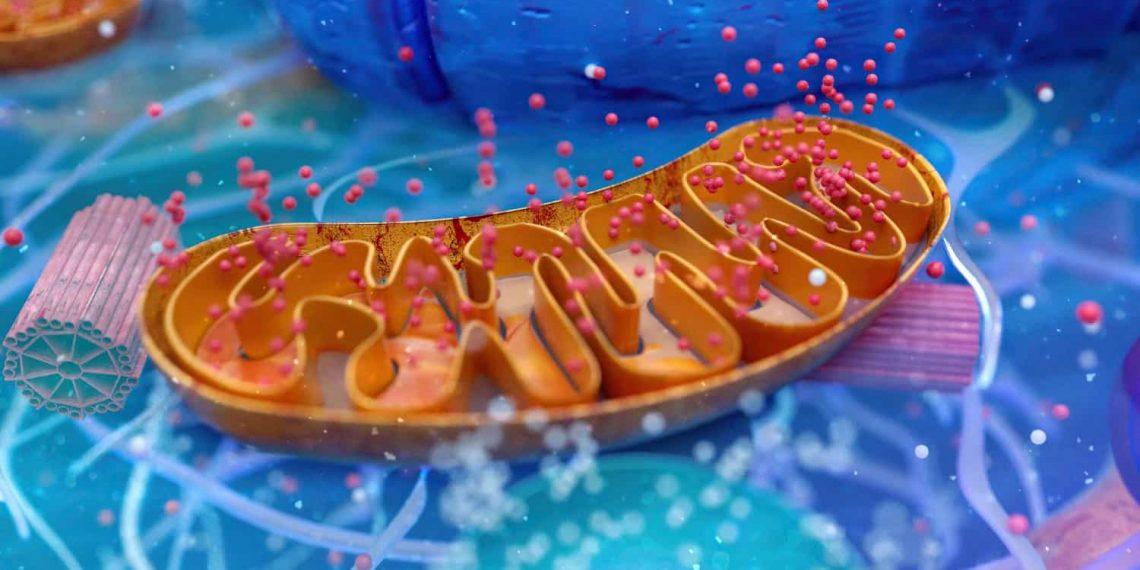Mitochondria fat loss is more than just a buzzword—it’s a biological revolution. If you’ve ever wondered why some people seem to lose fat faster, recover better, and have energy to spare, the answer might lie deep within their cells.
That’s right. Those microscopic powerhouses you’ve only heard about in high school biology? They’re secretly working overtime to burn your body fat. And once you understand how to activate them, you may never look at fat loss the same way again.
Let’s dive into the science-backed, mind-blowing ways mitochondria can become your personal fat-burning squad.
Contents
- What Are Mitochondria and Why Do They Matter for Fat Loss?
- 1. Mitochondria Torch Fat While You Sleep
- 2. Mitochondria Control Your Metabolic Furnace
- 3. They Convert Fat Into Energy—Not Fat Into More Fat
- 4. Mitochondria Hate Sugar, Love Fat
- 5. They Grow Stronger With Exercise—Especially the Right Kind
- 6. Mitochondria Love Cold Showers and Heat Therapy
- 7. Your Mitochondria Determine How You Age—and Store Fat
- The Bottom Line: Activate Your Mitochondria, Burn More Fat
- FAQs About Mitochondria and Fat Loss
What Are Mitochondria and Why Do They Matter for Fat Loss?
Mitochondria are known as the powerhouses of your cells. Their job? To convert nutrients into ATP, the energy currency your body uses for everything from blinking to burpees.
But there’s more. Mitochondria don’t just power your body—they determine how efficiently your body burns fat.
Here’s how mitochondria affect fat loss:
-
They oxidize fat, converting stored fat into usable energy.
-
More active mitochondria mean higher metabolic rates, leading to more calories burned at rest.
-
Healthier mitochondria reduce inflammation, which is often linked to weight gain and fat storage.
1. Mitochondria Torch Fat While You Sleep
Yes, you read that right. Mitochondria work 24/7, even while you’re binge-watching or dreaming.
During sleep, your body switches into repair and recovery mode. That’s when mitochondria go into overdrive to:
-
Break down stored fat for fuel.
-
Rebuild lean muscle (which burns more fat).
-
Restore hormonal balance, which impacts fat storage.
Boost it: Prioritize deep sleep. Just 7–9 hours of quality sleep each night can improve mitochondrial efficiency and fat burning.
2. Mitochondria Control Your Metabolic Furnace
When people say they have a fast metabolism, what they really mean is: “My mitochondria are working like a dream.”
Mitochondria are central to your basal metabolic rate (BMR)—the number of calories you burn at rest. The more mitochondria you have, and the more efficiently they function, the more fat you burn without lifting a finger.
Boost it: Add interval training to your workout routine. HIIT can increase mitochondrial density by up to 35% in just a few weeks.
3. They Convert Fat Into Energy—Not Fat Into More Fat
This is the big one. Mitochondria fat loss happens when your body can take stored fat and turn it into real energy. Not just store it, ignore it, or send it to your hips.
If your mitochondria are weak or sluggish, this process fails. You store fat instead of using it.
Boost it: Support mitochondrial health with nutrients like:
-
L-carnitine – helps shuttle fatty acids into mitochondria.
-
CoQ10 – powers up ATP production.
-
Alpha-lipoic acid – boosts mitochondrial enzyme activity.
4. Mitochondria Hate Sugar, Love Fat
Your mitochondria thrive on healthy fats—avocados, olive oil, fatty fish—not on processed sugars.
High sugar diets spike insulin and slow mitochondrial function. This forces your body to store fat instead of burning it. Worse? Over time, sugar damages mitochondria and can lead to insulin resistance.
Boost it: Swap out sugars for good fats. Think salmon over soda, and almonds over cookies.
5. They Grow Stronger With Exercise—Especially the Right Kind
Mitochondria aren’t static. You can build more of them, and make the ones you already have stronger.
The most effective method? Exercise that challenges your endurance and intensity.
Best mitochondrial-building workouts:
-
Sprint intervals
-
Resistance training
-
Fast walking or light jogging in a fasted state
Boost it: Just 20 minutes a day can increase mitochondrial biogenesis—the creation of new mitochondria.
6. Mitochondria Love Cold Showers and Heat Therapy
It sounds extreme, but temperature stress actually builds stronger mitochondria.
Cold exposure (like ice baths or cold showers) forces mitochondria to produce more energy to keep you warm—burning fat in the process.
Heat exposure, such as saunas or hot yoga, improves mitochondrial efficiency and oxygen utilization.
Boost it: Try alternating between cold and hot therapy for optimal mitochondrial stimulation.
7. Your Mitochondria Determine How You Age—and Store Fat
As you age, mitochondrial function naturally declines. And with it comes slower metabolism, more stored fat, and less energy.
But research shows that healthy mitochondria can delay age-related fat gain and even reverse metabolic slowdown.
Boost it: Use intermittent fasting. Going 14–16 hours without food gives mitochondria time to repair and clean themselves through a process called mitophagy—cellular spring cleaning.
The Bottom Line: Activate Your Mitochondria, Burn More Fat
Let’s make it clear: Mitochondria fat loss isn’t a myth—it’s cellular truth. These microscopic energy factories are the foundation of your metabolism, fat-burning capacity, and total body energy.
By fueling, strengthening, and multiplying your mitochondria, you can:
-
Burn fat more efficiently
-
Supercharge your energy
-
Improve mental clarity
-
Slow aging from the inside out
So instead of chasing the latest fad diet, start by supporting the very cells that make fat loss possible.
FAQs About Mitochondria and Fat Loss
Do more mitochondria mean faster fat loss?
Yes. More mitochondria—and healthier ones—mean your cells can burn fat faster and more efficiently.
Can I increase mitochondria naturally?
Absolutely. Through exercise, proper nutrition, intermittent fasting, and targeted supplements, you can build new mitochondria and improve their performance.
What are the signs of poor mitochondrial function?
Chronic fatigue, slow metabolism, brain fog, weight gain, and poor recovery are all signs your mitochondria may need a boost.
Are there supplements that help mitochondria fat loss?
Yes. CoQ10, L-carnitine, magnesium, alpha-lipoic acid, and NAD+ precursors are all known to support mitochondrial health.
Mitochondria fat loss is the key to long-term, sustainable, and natural fat burning.
Start by treating your mitochondria like the fat-burning machines they are. Feed them well. Move with purpose. Rest with intention. And give them the time and tools they need to help you transform your body from the inside out.
You’re not just burning fat. You’re building a body that burns it for life.
Stay vibrant, stay curious—and remember, the real power to change is already inside you.
Get Your FREE Natural Health Guide!
Subscribe now and receive our exclusive ebook packed with natural health tips, practical wellness advice, and easy lifestyle changes — delivered straight to your inbox.
















